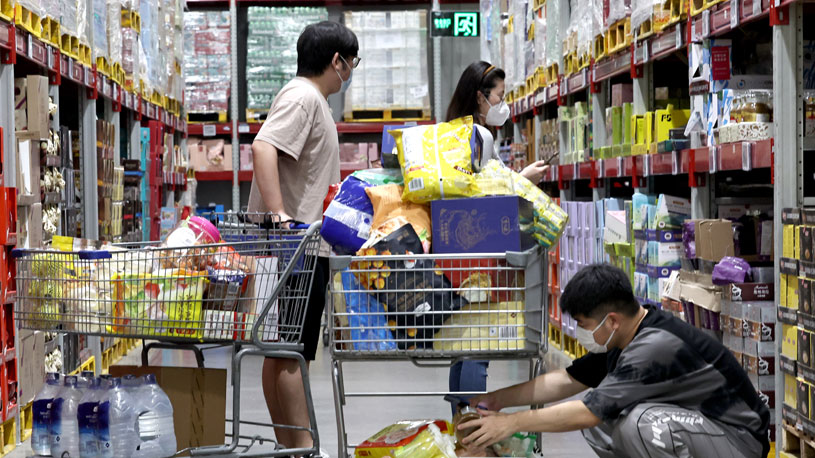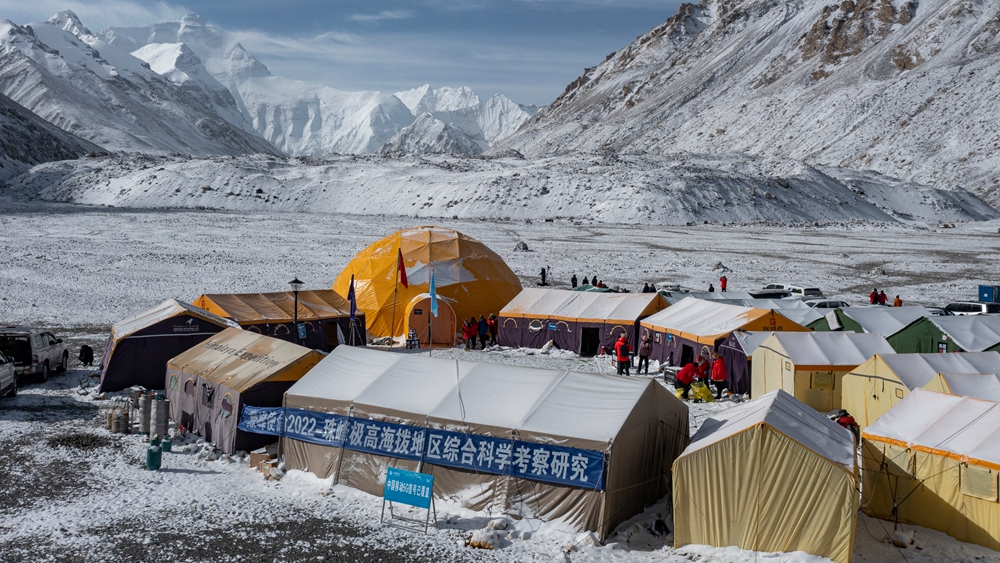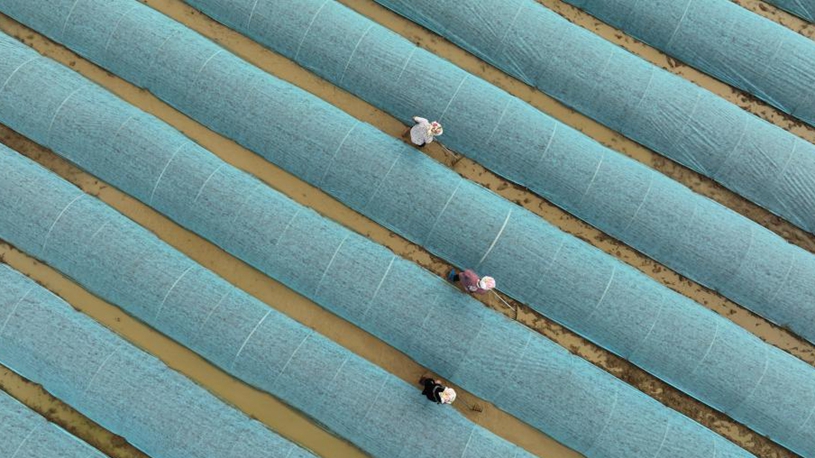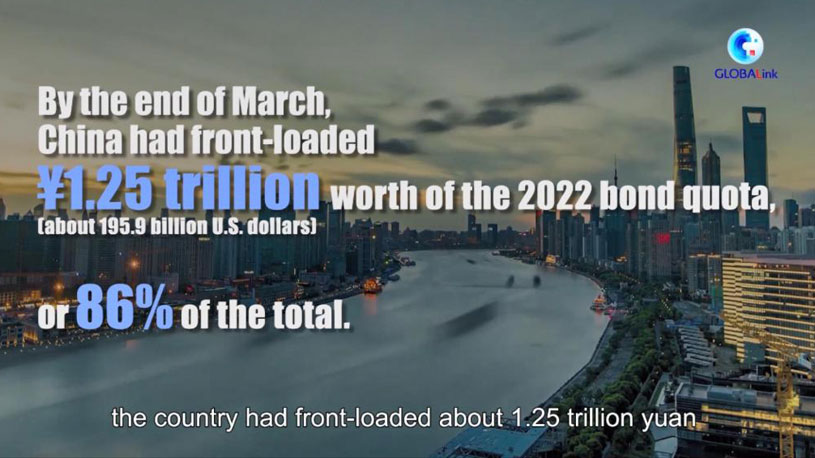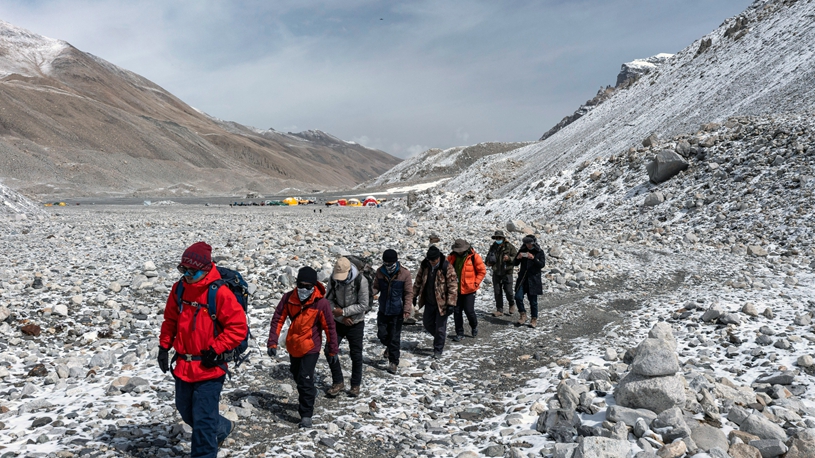* Ever since the Russia-Ukraine conflict erupted in February, the West, including eurozone countries, has imposed several rounds of sanctions aiming at crippling Russia's economy. However, some of these measures are feared to have backfired and jeopardized the overall European economy.
* The main channel through which the conflict in Ukraine and sanctions on Russia affect the euro area economy is raising global energy prices and energy security, the International Monetary Fund said in its World Economic Outlook report in April.
* Apart from a looming drop in the standard of living in many parts of Europe, the ongoing conflict and sanctions would cause a food crisis in Eastern Europe and other parts of the world.
BRUSSELS, May 3 (Xinhua) -- As the Russia-Ukraine conflict rages into the third month with no sign of truce any time soon, the entire European continent is bearing the brunt of the crisis.
Against the backdrop of an economic slowdown, supply chain disruptions and weak consumer morale after more than two years into COVID-19, the Russia-Ukraine conflict and subsequent sanctions on Russia are wreaking more havoc in Europe, causing widespread panic over regional security, soaring food and energy prices and a looming drop in the standard of living.
ECONOMIC WOES
The International Monetary Fund (IMF) has revised down its eurozone growth forecast for 2022 to 2.8 percent from 3.9 percent in its January estimate, with the region's biggest economy, Germany, taking a heavy hit.
The main channel through which the conflict in Ukraine and sanctions on Russia affect the euro area economy is raising global energy prices and energy security, the IMF said in its World Economic Outlook report in April.
The shockwaves of the conflict hurt countries like Italy and Germany more than other European nations because they had "relatively large manufacturing sectors and greater dependence on energy imports from Russia," said the report.
Germany's economy is now expected to grow by 2.1 percent this year, down from the previous forecast of 3.8 percent. Italy will also drop, with a growth rate of 2.3 percent compared to an earlier forecast of 3.8 percent.
Ever since the Russia-Ukraine conflict erupted in February, the West, including eurozone countries, has imposed several rounds of sanctions aiming at crippling Russia's economy. However, some of these measures are feared to have backfired and jeopardized the overall European economy.
Two months into the conflict, prices are rising. Oil hovers over 100 U.S. dollars a barrel after reaching historic highs in March, while the prices of gas, wheat, aluminum, nickel and other raw materials have soared.

Photo taken on April 2, 2022 shows a gas station in The Hague, the Netherlands. (Xinhua/Wang Xiangjiang)
As a result, the euro area's annual inflation reached an all-time high of 7.5 percent in April, according to the European Union (EU)'s statistical office Eurostat.
Energy is expected to have the highest annual rate in April, followed by food, alcohol and tobacco, non-energy industrial goods and services, Eurostat said in a flash estimate published Friday.
The estimate shows high inflation is ubiquitous among all 19 countries in the euro area, and the inflation rates in Estonia, Latvia, Lithuania, Netherlands and Slovakia have topped 10 percent.
SANCTIONS BACKFIRE, CALLS FOR DIALOGUE
By slapping sanctions on Moscow, most EU officials hold to an end of dependence on Russia for energy and other supplies. Yet some analysts think otherwise.
In a recent interview with Xinhua, Italian economist Michele Geraci warned the Russia-Ukraine conflict could lead to "a weaker Europe because the economy there could take a serious hit."
"We are imposing sanctions on energy products thinking that these would hurt the Russian economy. However, they would hurt the EU's economy more," said Geraci, former undersecretary of state at the Italian Ministry of Economic Development.
As a result of this, he said Italy, Germany and a number of smaller countries in Eastern Europe would be stranded. The EU's export ban on luxury goods to Russia, for example, would hurt such brands as Gucci and Prada.

A tourist overlooks the city view of Florence at Piazzale Michelangelo in Florence, Italy, on April 14, 2022. (Xinhua/Jin Mamengni)
Russia was the EU's fifth-largest partner for exports and third largest for imports last year, with two-way trade in goods totaling 257.5 billion euros (279.4 billion dollars), according to data released by Eurostat.
"Sanctions never work," Geraci said. "To solve this issue, we have to use diplomacy with Russia. We don't just need to go to Kiev. We need to go to Moscow."
Hungarian political scientist Csaba Moldicz also calls for dialogue. "Sanctions alone won't work in ending the conflict," he told Xinhua in an interview, adding that the EU should hold dialogue with Russia instead of cutting off diplomatic and commercial ties.
Geraci blames the eastward expansion of the U.S.-led NATO toward Russia as a root cause for the ongoing conflict between Russia and Ukraine.
In 30 years, NATO has gone through five rounds of enlargement, moving eastward more than 1,000 km to somewhere near the Russian border, pushing the country into a corner step by step.
The conflict is in a way a proxy one between Russia and the United States which is being fought in Europe and for which the Europeans are paying a heavy price, whereas the cost for the United States is minimal, he said.
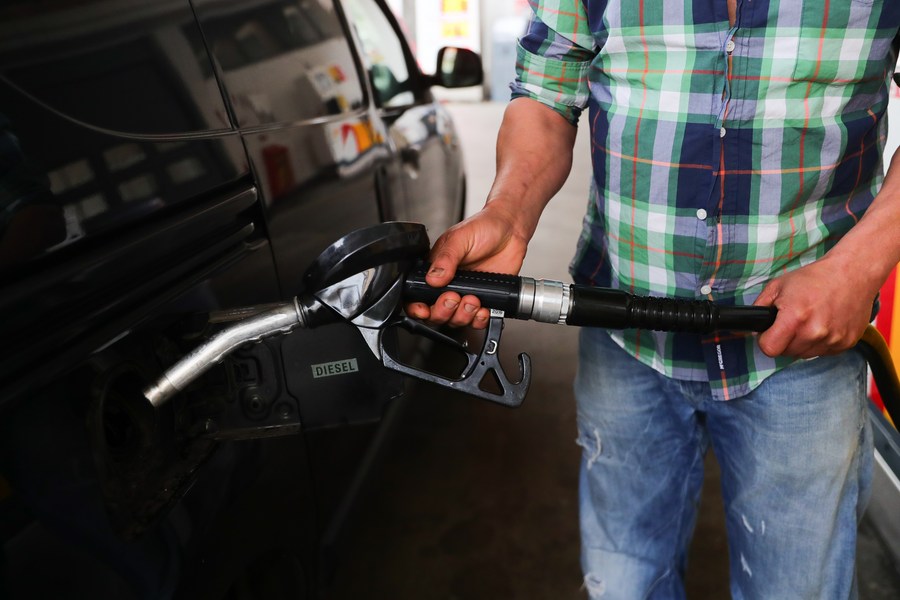
A man fills the tank of a car at a gas station in Brussels, Belgium, March 29, 2022. (Xinhua/Zheng Huansong)
NATO's eastward expansion has not only triggered the crisis in Ukraine, but also threatened peace, security and cooperation worldwide, said Zivadin Jovanovic, former minister of foreign affairs of Yugoslavia.
NATO's eastward push has deeply harmed the whole European continent by "militarizing its infrastructure, economy and even its education system," Jovanovic noted.
Jovanovic, who currently presides over the think-tank Belgrade Forum for a World of Equals, said that instead of fueling the conflict further, the West should engage in a global high-level dialogue for peace and security, which would be vital to ending the crisis.
LIVELIHOOD IN JEOPARDY
In many parts of Europe, rising energy prices and subsequent inflation are already jeopardizing the livelihood of the people and causing widespread concern over regional economic development.
Countries like Hungary could not possibly end energy imports from Russia anytime soon and would therefore suffer more from the ongoing sanctions than Russia, said Moldicz, research director at the Eurasian Center of the John Neumann University in Budapest.
About 85 percent of Hungarian households rely on natural gas from Russia for heating, he said. "We rely heavily on natural gas. Even if we replace gas with wood and coal, it will be technically impossible to change the entire heating system shortly."
In addition to an energy crunch, Moldicz said the ongoing conflict and sanctions would cause a food crisis in Eastern Europe and other parts of the world.
Ukraine and Russia are among the world's leading exporters of wheat. Disruptions of wheat exports will drive up grain prices and harm the low-income population worldwide. The IMF has warned that "increases in food and fuel prices may also significantly increase the prospect of social unrest in poorer countries."
World food commodity prices soared in March to the highest levels ever, the Food and Agriculture Organization of the United Nations (FAO) reported earlier in April.
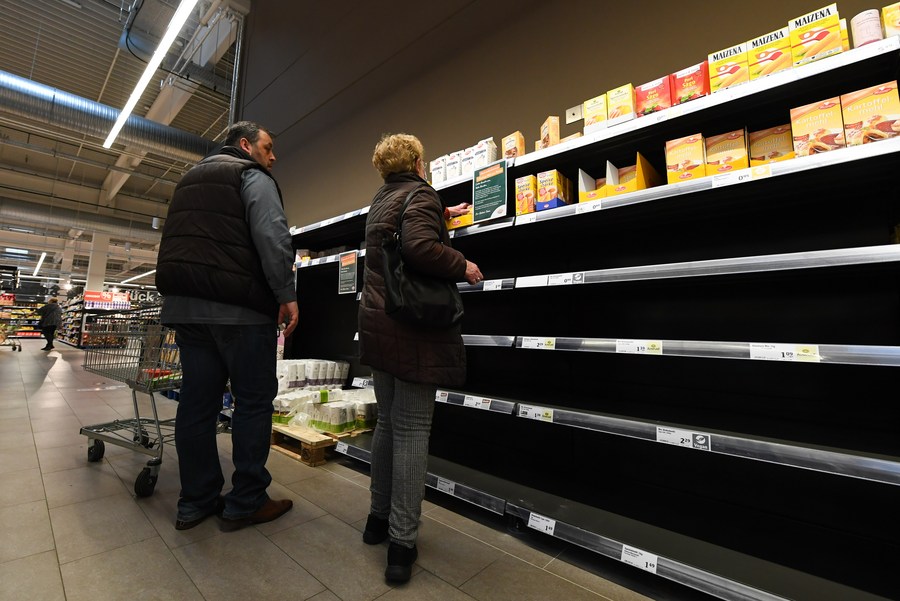
Customers shop at a supermarket in Frankfurt, Germany, April 22, 2022. (Xinhua/Lu Yang)
The UN has allocated 100 million dollars to fight hunger in Africa and the Middle East as the spillover effects of the military operation in Ukraine threaten to push millions even closer to famine.
In addition, the conflict has forced more than 11 million people to leave their homes in Ukraine so far. About 5.3 million of them have left for neighboring countries, while 6.5 million others are now internally displaced in their home country, according to the UN.
The UN's children agency has said that two-thirds of all Ukrainian children have fled their homes.
The conflict "has led to extensive loss of life, triggered the biggest refugee crisis in Europe since World War II, and severely set back the global recovery," said the IMF.
"If the Ukrainian refugee crisis continues, it would clearly put a lot of stress on facilities like schools and hospitals," said Lorenzo Codogno, founder and chief economist of LC Macro Advisors Ltd and a visiting professor at the London School of Economics. (Video reporters: He Xiyue, Chen Hao, Shi Zhongyu, Degryse Diedrick, Attila Volgyi and Geza Molnar; video editors: Jia Xiaotong and Cao Ying)■

